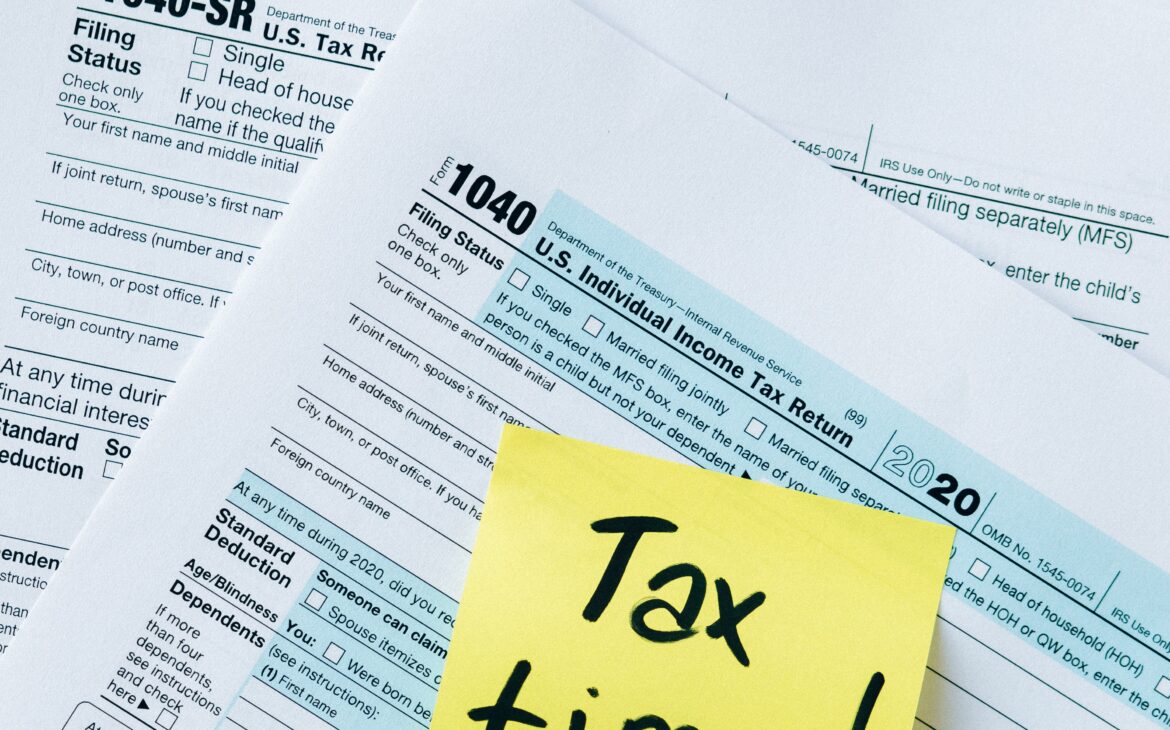About Taxes and What to Do With Your Refund

*I am not a tax professional. The opinions expressed in this article are informational only and are not intended as specific advice to you or anyone else. Please read our disclosures for additional information.
Good ol’ Uncle Sam. Taking, taking, taking and once a year we hope and pray he gives a little something back. Tax refunds are simply a return of money you overpaid during the year that you didn’t need to. Some people don’t receive a refund because they withheld the perfect amount. Others owe money because they didn’t withhold enough during the year. Others invest their excess during the year in the bank of Uncle Sam for 0% interest and receive a refund on that money after they file their tax return. There really is no wrong or right way to do your taxes.
We pay a lot of taxes. Everyone knows about the usual offender, the income tax. Taken off your paychecks without your permission to hopefully fund useful functions for society. Ah, don’t we wish that were 100% accurate), but I digress. In addition to income tax, we also pay sales tax when we purchase goods in a store, payroll tax if you own a business, gas tax if you live in California, property tax, etc. The government rounds up these taxes and disburses them according to its budget to different agencies such as national defense, social security, education, welfare, transportation, etc. We can agree or disagree on the use of these funds for their intended purposes, but regardless, we are taxed and our money goes to various functions.
Of all these taxes, the only ones we can receive a refund back from is our income tax. Each paycheck the federal and state governments take a portion of your paycheck called withholdings. At the end of the year, every person files a tax return to determine whether the government collected enough taxes or if the government owes a refund because they collected too much. We hope for the latter.
You can file taxes on your own by getting forms from irs.gov, working with a CPA or accountant, or through online providers like H&R Block, Turbo Tax, etc. Unless exceptions are made, taxes must be filed by April 15th or an extension requested. In which case you have until October 15th. You must file a return for the federal government and the state in which you reside.

Common Tax Terms
1099 or W2- a tax for you will receive from your paid work this year. If you are an independent contractor, you will receive a 1099 from every company you contracted with during the year. If you are a traditional employee you will receive a W-2. These forms will show the amount you were paid during the year and any withholdings you may have had.
Gross Income- total amount of income paid to you during the year.
Net Income- Total amount of income after taxes were withheld.
Adjusted Gross Income- Your AGI is your total taxable income minus qualifying deductions. Your AGI determines whether you qualify for other tax credits or deductions.
Standard Deduction- a credit the government gives you simply for being alive. These amounts can change by year, but you subtract your deduction from your taxable income.
Capital Gains- If you sell an asset for more than you paid for it, you have benefited from a gain in value. The amount of taxes you pay on this gain depends on how long you held your asset for.
Capital Losses- If you sell an asset for less than you paid for it, you have incurred a loss. You can use capital losses to offset capital gains and in turn possibly be able to pay less taxes.
Dependent– A dependent is some who you are fully financially responsible for. Claiming a dependent on your tax return can lead to tax breaks for you.
Child Tax Credit- Families with children under the age of 17 qualify for a deduction of up to $2,000 per child (currently).
Child and Dependent Care Credit- Working families are also considered during tax time. Families who have to pay for care of a child under the age of 13 or a spouse’s care, can claim expenses incurred of up to $4,000 for one qualifying person and up to $8,000 for two or more people. The person in question must live with you more than half of the year.
Earned Income Tax Credit- for lower income earners, the EITC can provide assistance to earners up to $59,187 (for 2022, subject to change each year). The EITC can reduce the amount of taxes you owe and is likely to generate a refund of taxes to you. Remember, this only applies to earned income which is taxable. Any non-earned income, unemployment, child support, etc. is not included in this.
Filing Status- The way you file you return impacts the types of deductions you can receive. There are currently five filing statuses.
- Single
- Head of household
- Married filing separately (if you wish to keep your assets separated)
- Married filing jointly
- Qualifying widow or widower
Itemized Deductions- There is a list of approved deductions you can claim over the year. These include charitable donations, medical costs, etc. These deductions can lower your taxable income and can lead to a potentially larger refund.
Nontaxable Income- any income you received during the year that is not taxable. This can include child support payments, gifts, or cash rebates.
Let’s say you’re one of the lucky ones who receives a tax refund. What should you do with it? There really isn’t a right or wrong answer to this question. It depends person to person. Here are six things that could be done with your tax refund.

- Repay debt. As much as we try, there can be seasons of life where we take on more debt than we are comfortable with. Your tax refund can be a great way to gain some headway on your debt and give you more peace of mind.
- Invest. if you have an investment account, consider adding your refund to this account.
- Set into a savings account. Whether its your rainy day fund or saving for a specific purpose, there is something satisfying watching your savings build month after month. Look into a savings account that earns you interest while your money stays happily in its account.
- Take a vacation. I threw this one in there for the people like me who have an insatiable travel bug. If your tax return will be excess money to you and you don’t have more important purposes for it, consider taking yourself and your loved ones on a little ‘get away’. I believe making memories is much more important than buying new things anyways.
- Purchase a necessity for the home. If you’ve been pushing off a large expense because you didn’t want to put it on your credit card, now is a good time. Buy that new refrigerator or washing machine.
- Invest in a hobby or side hustle. It takes money to make money, so use this little cash infusion to boost your future income. Do you have a passion you’d like to do more of? Maybe turn it into your side hustle and make some extra cash.
While I hope someday our tax burdens become lighter, the reality is it will likely get heavier from here. Educate yourself and take advantage of the tax code to ensure you’re getting the money that is rightfully yours.
Sincerely,
Amanda
Be sure to follow over on Instagram for new post updates and other fun content













